Today, many companies prioritize and promote diversity and equality in the workplace, responding to the social context and at the same time contributing to a good working climate and attracting loyal team members.
The technology industry has traditionally been male-dominated, but the gender gap in tech is closing. Over 30% of software engineers at SaM Solutions are women. We talked to some of them to learn how they ended up in IT and what it is like to be a woman working in tech.
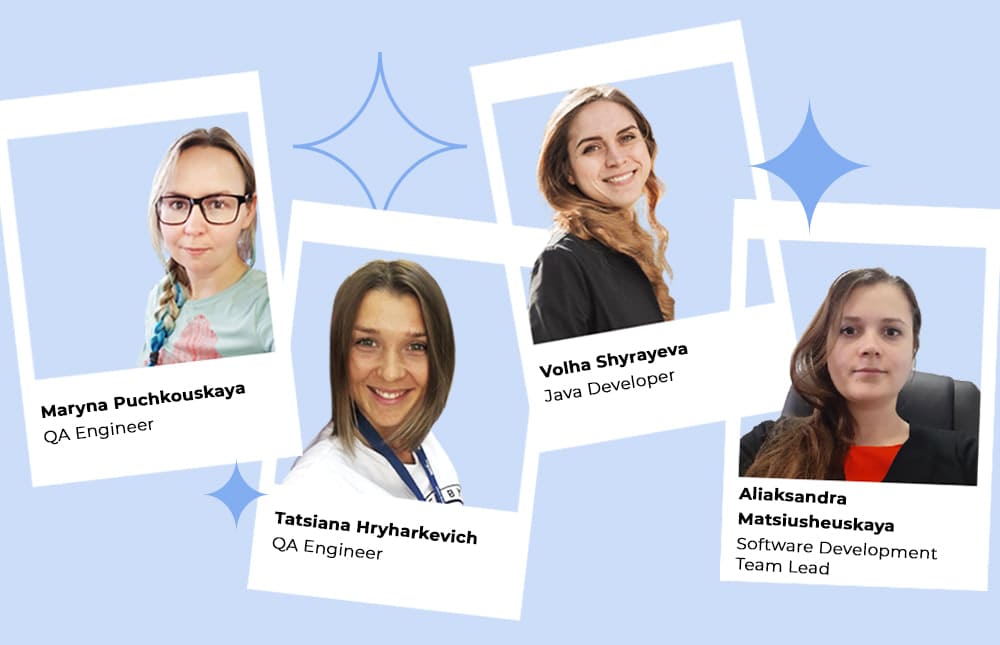
How did you decide to pursue a career in computer science? Was it your childhood ambition or a spontaneous decision to work in the field?
Volha: I didn’t like Literature, Art, History, and other humanities at school. I enjoyed Mathematics, Physics, and Computer Science. Therefore, while I was still in high school, I decided I wanted to be a software engineer with a mathematical background.
Tatsiana: I am an engineer-geodesist by profession. Over time, I realized that I had no more opportunities to develop in that area. This was the main reason I changed my profession. The decision to work in the tech field was spontaneous. I just decided to try something completely different and not related to the profession I already had.
Maryna: I got into IT quite by accident. I was looking for a part-time job in my 5th year of university and managed to get a position in a private company. At that time, IT was not yet mainstream, and I did not understand that I was going to work at a product company as a technical support specialist. “An errand girl” — this is how I imagined my work.
Aliaksandra: I am a medical doctor by education, having graduated from the Belarusian State Medical University and passed a sub-internship in surgery at the 2nd surgical department. My internship was in otorhinolaryngology at the 4th City Clinical Hospital. After graduation, I worked as an E.N.T. specialist.
I was always interested in the tech area and spent a lot of time using the computer. In addition, I wanted to find a job in a field less stressful than medical practice. It began as a hobby — I would write an algorithm for how to complete a quest in a game — but then I got addicted to it. And I decided to take a risk, despite the skeptical opinions and indignation of people around me.
In fact, my initial plans were to go to Germany and work as a doctor. I even learned German to level B1. But I liked programming so much that I decided to risk everything and try my hand in this area. And had I failed, I would have left the country.
Have you ever felt a bias towards you because you are a woman in a male-dominated sphere?
Volha: I’ve been working as a software engineer for three years, and I’ve never felt any bias during that time. It doesn’t matter who you are. If you can design and implement an excellent solution to a given problem, you are a good engineer.
Tatsiana: I often experienced gender bias in other spheres, but not in tech.
Maryna: There has been no bias. Initially, I objectively lacked theoretical knowledge (since my education is not field-specific), so if there were points of criticism, they were not connected to gender but rather to my lack of experience.
Aliaksandra: I felt huge pressure during job interviews at some companies. It often came from tech specialists and project managers.
At one of the interviews, the first question I was asked was: “Girl, what have you forgotten here?” Although I was 27 years old, an adult, not a girl with no understanding of anything. The attitude of HR specialists has always been good.
I also felt pressure because I lacked field-specific education. For example, if graduates of BNTU, BSU and BSUIR were given tests with a 60% threshold, for me this threshold would increase to 80%. Quite often, my CV was not even considered because I didn’t have the required diploma. Perhaps that would make sense if universities provided the necessary practical basis for working in this area. But the reality is that graduates in any case need to attend additional courses or internships. I don’t quite understand the principle of such a “filtering.”
Looking at guys who changed careers like me, I would say that they are much more motivated than recent graduates.
At SaM Solutions, there is no gender discrimination and no ageism, which is why I liked the idea of working at the company.
Do you think that women have the same opportunities as men in the tech world?
Volha: I think that due to “discrimination” issues, women have more opportunities now. I find this unfair. For instance, in large companies such as Google or Facebook, it is easier to pass an interview if you are a woman. I think this results in losing talented men. The good idea is to look at a person but not at their gender.
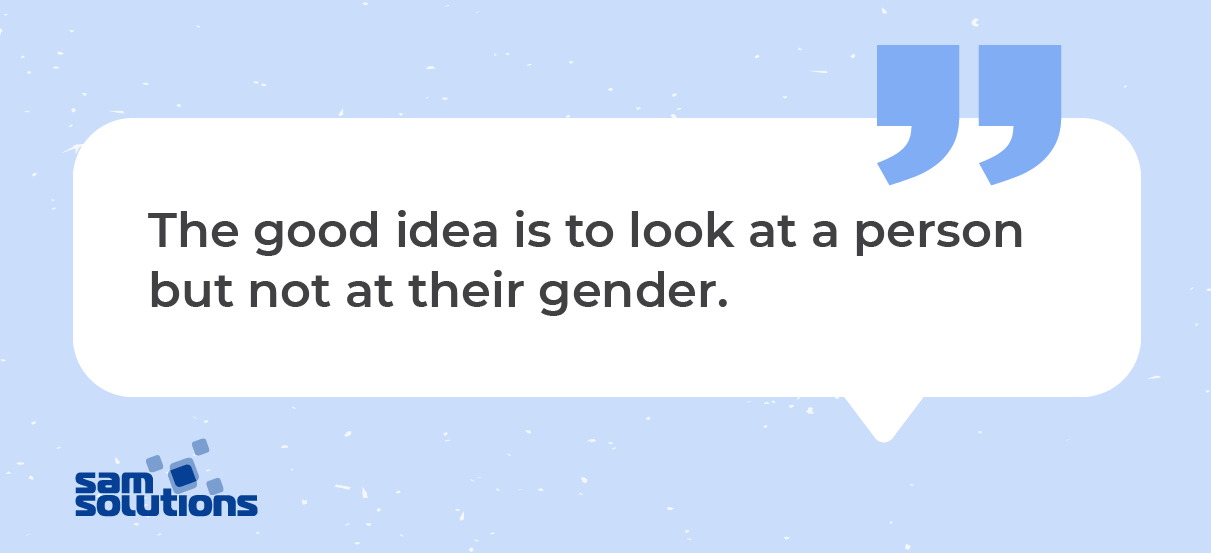
Tatsiana: Yes, I believe that women have equal opportunities as men.
Maryna: Definitely yes, unlike in some other areas.
Aliaksandra: I think so. Girls are pretty diligent and meticulous, which is a definite advantage. And looking at the girls in our department, I would not say that their work is worse than that of the men.
Do you have a mentor, or who is your role model in the world of software engineering?
Volha: Unfortunately, I do not have a mentor or a role model. But I get inspired by the success stories of people who designed and developed something essential.
Tatsiana: Yes, of course! These are my colleagues who have been working on the project for a long time. Among them, there are both women and men.
Maryna: Yes. This person is the lead developer from my first job. I still ask him for advice from time to time.
Aliaksandra: It’s difficult to single out someone. During my short journey in IT, there were plenty of people who taught me — architects, team leads, other developers. At the moment, our Senior Developer Alexey Mukha helps me a lot. I really like that you feel like one team; you can always ask for help and be sure that you will not be ignored.
What are your biggest achievements in the workplace?
Volha: One of my biggest achievements is moving forward with the solution of using Computer Vision and Machine Learning in projects. I transferred the knowledge to the team and we succeeded. But I still prefer backend development rather than ML.
The other achievement is that I’m good at low-level programming, especially when it comes to designing and implementing algorithms. Unfortunately, many developers are not good at algorithms and data structures. However, I find it important to understand different techniques of optimizations at a low level and am always there to share my knowledge.
Tatsiana: It’s working with automated testing and mastering new tools for manual testing.
Maryna: I like that I have reached such a level of understanding of the subject area, tools and processes that I can already teach other people.
Aliaksandra: I haven’t been working long enough to have great achievements yet. When my first project in which I am team lead goes live, that will be an achievement for me. I also consider it an achievement when the guys under my supervision grow professionally.
Could you work in another sphere? If yes, which one?
Volha: I don’t see myself working anywhere else other than the software engineering sphere.
Tatsiana: I guess so; for example, as an architectural designer or a graphic designer.
Maryna: I think I could work in any sphere where you need to use your intellect, and it should be result-oriented, not time-oriented.
Aliaksandra: I can always go back to working as a doctor, but I believe that I am now where I belong.
What advice can you give to women considering a career in IT?
Volha: If you don’t have a technical background and education, please do not try to pass software engineering courses to become a developer (it doesn’t matter if you are a man or a woman). I find such courses a useless waste of money.
If you are a woman and considering a career in IT, then I think you don’t need any advice — everything will be alright.
Tatsiana: Do not be afraid to start moving in this direction: find a good training school and have a desire to continuously develop.
Maryna: Precisely to women? I don’t even know … good luck? I don’t think that IT is fundamentally different from any other job. If you are attracted to it, interested in it, are an achiever — welcome!
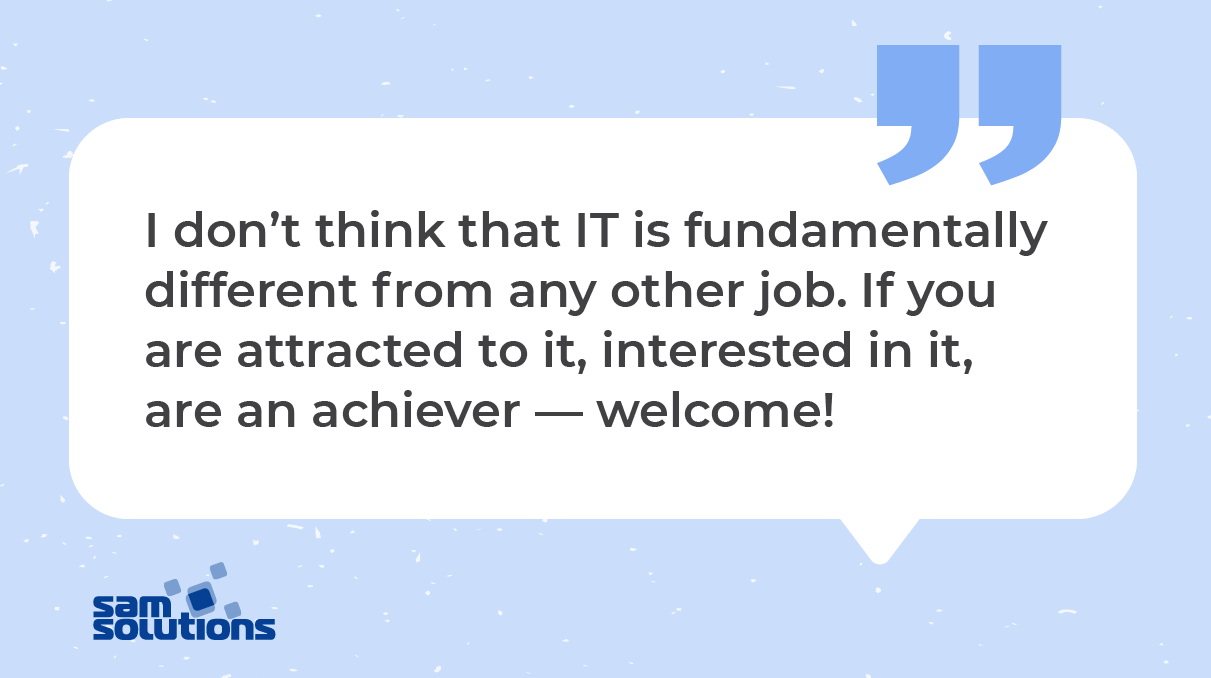
Aliaksandra: Avoid companies with sexist attitudes, even if they come from certain people and not from the company as a whole. Even if they hire you, it will be uncomfortable to work under the pressure of prejudice.
Don’t be afraid that things will go wrong. If you like this field, finding a job is only a matter of time and motivation.
Don’t expect any favors. You are hired as an employee and you will be treated the same as other colleagues.
In general, I think that it’s stupid to divide IT workers into men and women: you are a working unit and nothing supernatural is required here. For me, it was much harder to work as a doctor both physically and morally, including stress resistance. Now, I have a lower workload and practically no sleepless nights.



























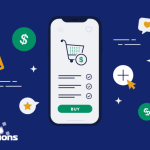 5 Reasons Why Your Business Needs a Mobile eCommerce Application
5 Reasons Why Your Business Needs a Mobile eCommerce Application Using Salesforce to Improve Your Sales Pipeline: Five Tips
Using Salesforce to Improve Your Sales Pipeline: Five Tips Cross-Platform Mobile Development: Five Best Frameworks
Cross-Platform Mobile Development: Five Best Frameworks How to Develop Custom Accounting Software
How to Develop Custom Accounting Software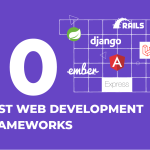 10 Best Web Development Frameworks in 2024
10 Best Web Development Frameworks in 2024




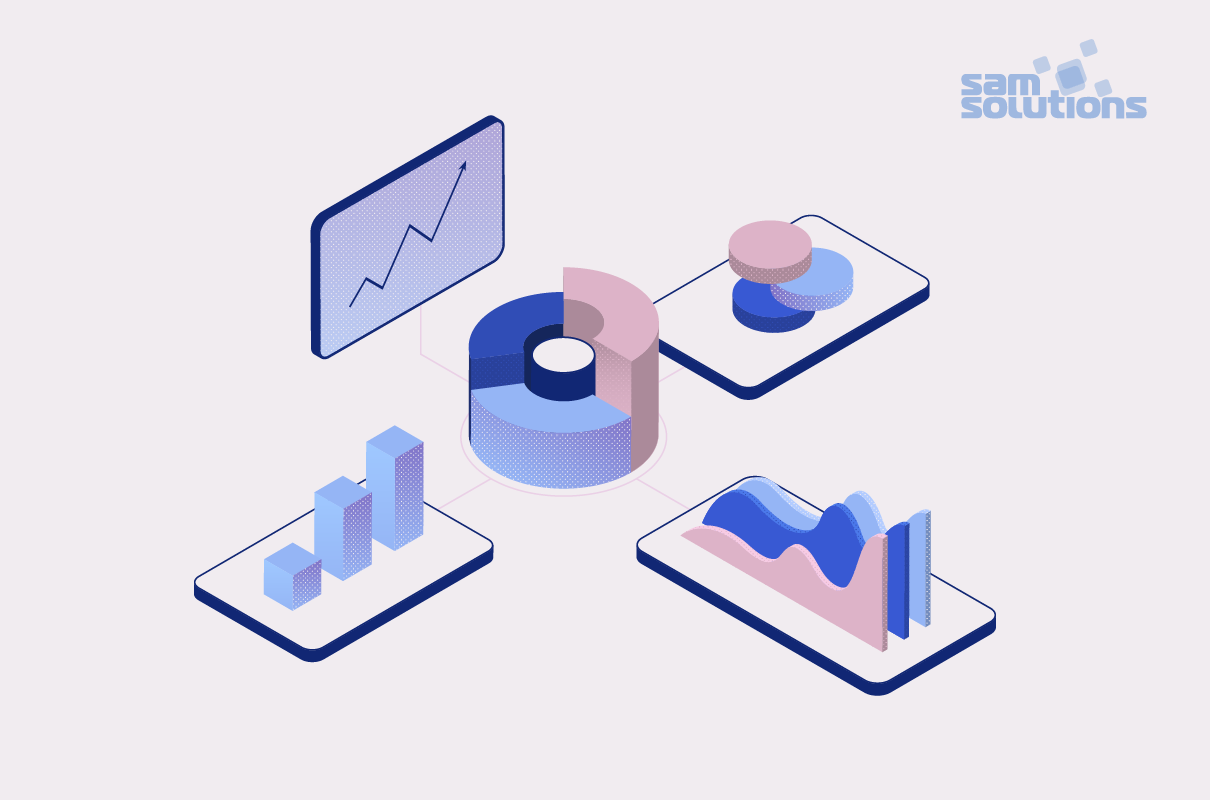

 Top 30 Ecommerce Tools to Elevate Your Business in 2024
Top 30 Ecommerce Tools to Elevate Your Business in 2024 5 Best Tools to Improve Embedded Software Testing
5 Best Tools to Improve Embedded Software Testing Why React and Node.js Are the Top Technologies for Creating High-Performance Web Apps in 2024
Why React and Node.js Are the Top Technologies for Creating High-Performance Web Apps in 2024 10 Best IoT Platforms for 2024
10 Best IoT Platforms for 2024